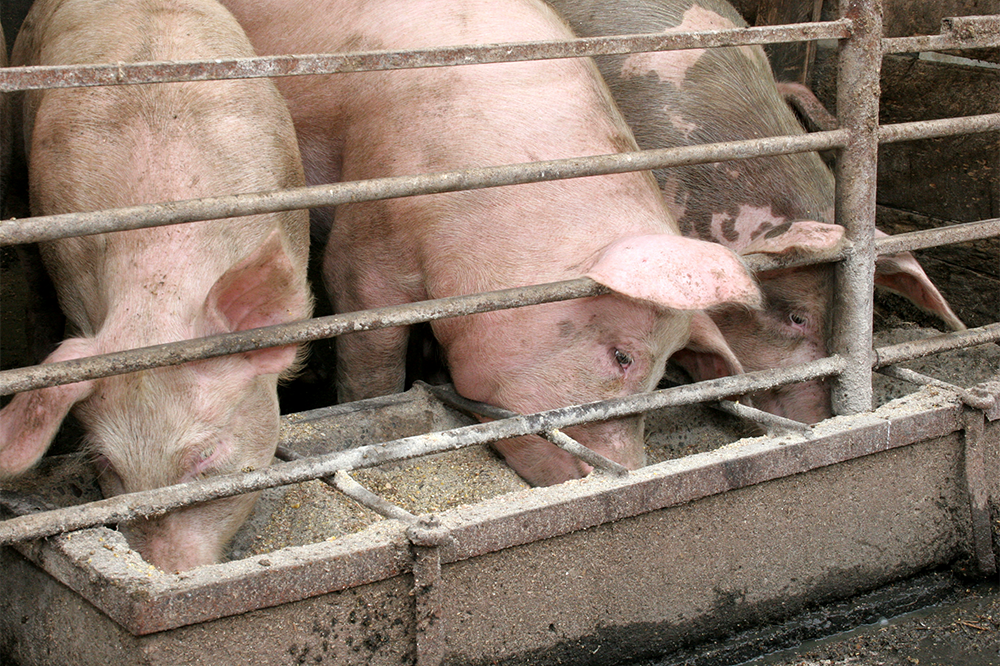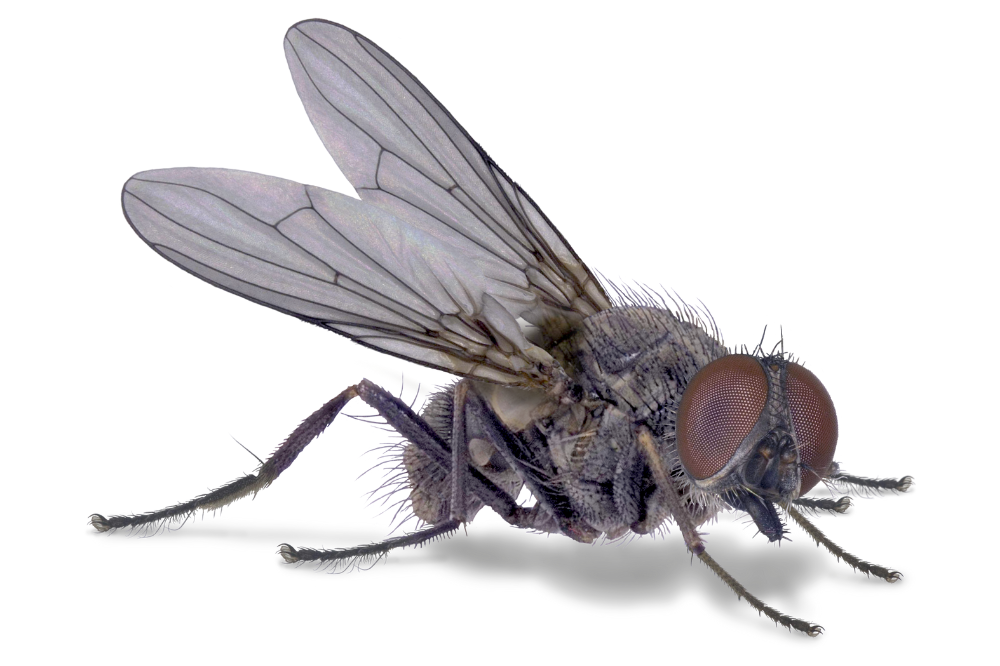Meet the Stable Fly
Stable flies will enjoy the blood of dairy cattle, swine, equine, sheep, goats and human hosts, causing stress on your herd and employees. To better control stable fly populations and protect against diseases, it’s essential to know how to identify these biting flies and the signs of the most common health effects and diseases in your animals.
How to Identify Stable Flies?
- 1mm in length
- Distinct piercing type mouthparts
- Dull-gray color similar to the house fly
- Checker-board pattern on abdomen
Health Effects and Diseases from Stable Flies
Sheep and Goats
The stable fly will mainly feed on the legs and flanks of sheep and goats, causing them to consume less feed and dramatically decrease performance. Some of the most common health effects include weight loss, increased stress and livestock bunching. If you notice livestock bunching, that is a good indication that stable fly bites have reached the point of impacting production and profits.
Equine
Stable flies in and around stables are more than just a nuisance. They can also carry and transmit serious diseases that put a horse’s well-being at risk. Common diseases spread by stable flies include pigeon fever, summer sores, and equine granular dermatitis. Preventing horse diseases and protecting the overall health and comfort of the animal requires consistent care and a wide range of dedicated efforts, including fly control.
Dairy Cattle
Stable flies will administer a painful bite and irritate cows during resting, feeding and milking. These flies not only cause irritation but also cause a loss in production. Research shows that high populations of stable flies can lower milk production by 15 to 30 percent. Because of the stress and discomfort that stable flies induce, dairy cattle will begin bunching, decreasing profits.
Controlling stable flies through a combination of strategies and products keeps the animals comfortable and helps prevent common health effects and diseases in livestock. Implementing a proactive, integrated pest management (IPM) program incorporating ClariFly® Larvicide will help prevent stable fly populations from rapid growth.



